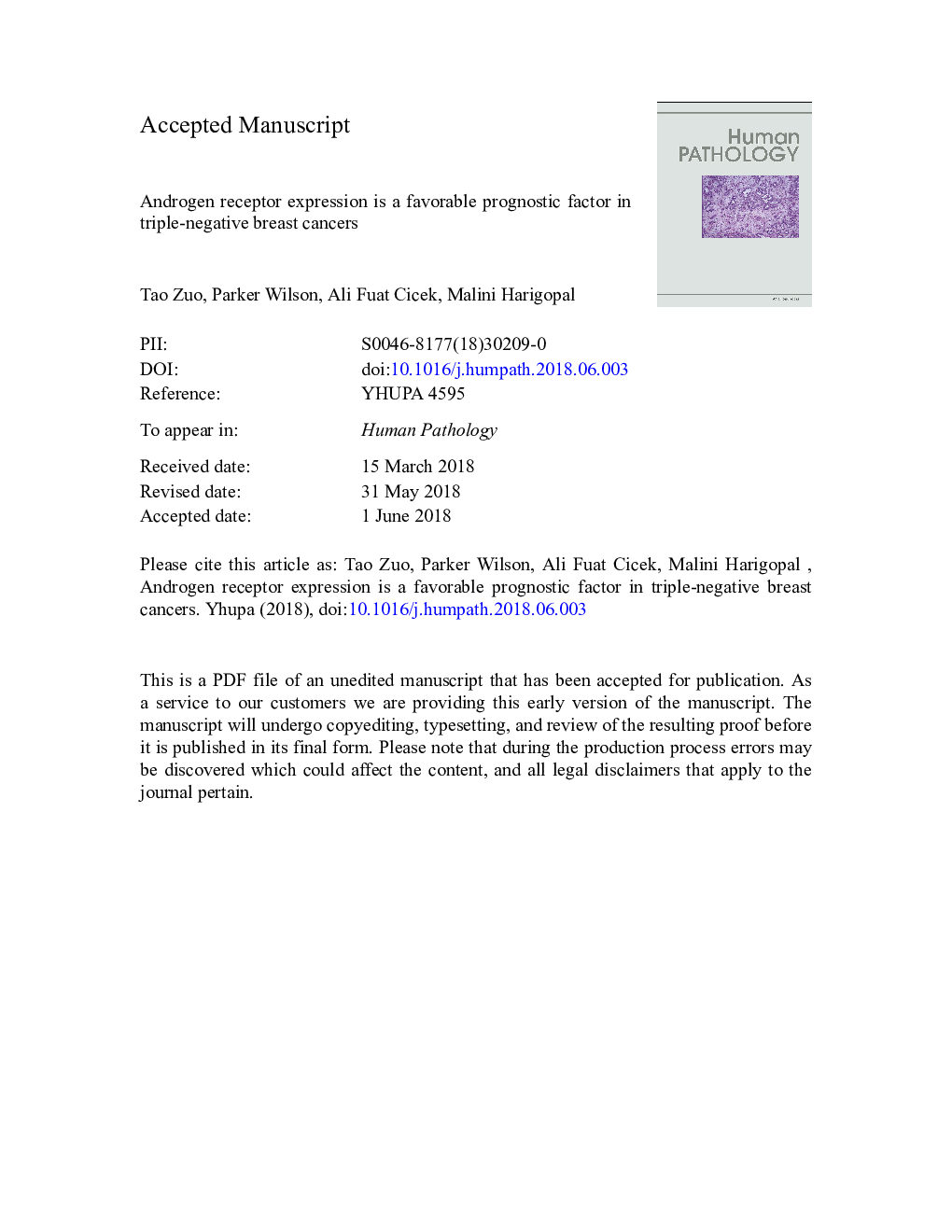| Article ID | Journal | Published Year | Pages | File Type |
|---|---|---|---|---|
| 10091023 | Human Pathology | 2018 | 17 Pages |
Abstract
Androgen receptor (AR) expression is an emerging prognostic marker that has been observed in 25% to 75% of triple-negative breast cancers (TNBCs) that lack estrogen receptor, progesterone receptor and HER2 overexpression. TNBCs are treated with AR-targeted therapies and standardized evaluation of AR expression may help guide patient management. Basal-like TNBCs are a subgroup of TNBCs defined by positive immunoreactivity for CK5/6 or EGFR that carry a worse prognosis. However, it's unclear whether basal-like TNBCs have a different rate of AR positivity or if AR expression is predictive of disease-free survival (DFS) in this patient group. Here, we examined a total of 185 TNBCs for AR and CK5/6 using tissue microarrays (TMAs). Among all samples, 32% were AR positive using a 1% cutoff, and 24% were AR positive using a 10% cutoff. Ninety (49%) TNBCs were CK5/6 positive with lower intensity of AR expression compared to CK5/6-negative cases. There was no significant difference in pathologic stage, tumor size, histologic grade and type, or lymph node stage after stratifying by AR and CK5/6 positivity. AR-positive TNBCs had better overall survival (OS) and DFS compared to AR-negative TNBCs. In addition, increased AR expression carried a dose-dependent effect on DFS. AR expression, nodal status and tumor size were significant predictors of disease-free and overall survival in a multivariable model adjusted for CK5/6 expression, age, histologic grade, and mitotic rate. In conclusion, our data demonstrated that AR positivity is a favorable prognostic factor for triple-negative breast cancers.
Keywords
Related Topics
Health Sciences
Medicine and Dentistry
Pathology and Medical Technology
Authors
Tao MD, PhD, Parker MD, PhD, Ali Fuat MD, Malini MD,
